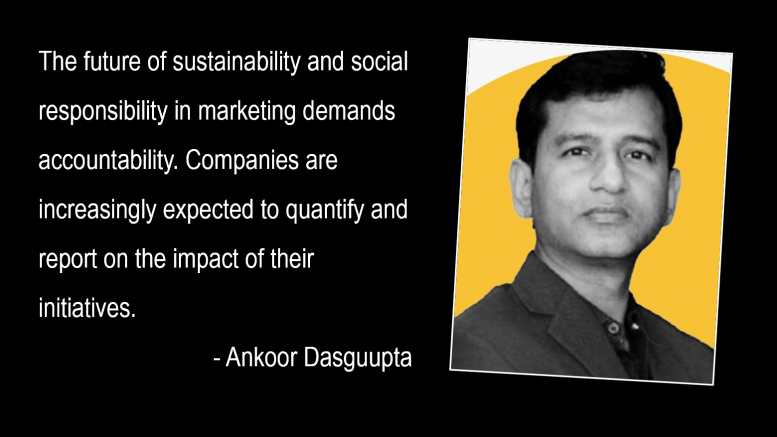In an era where consumers are becoming increasingly conscious of their environmental impact and societal footprint, businesses are compelled to re-evaluate their marketing strategies. Sustainability & social responsibility are no longer mere buzzwords; they’re integral components shaping the future landscape of marketing. The future of marketing lies in the hands of companies that not only sell products but also champion causes, express and act responsibly while genuinely connecting with their audience on a deeper level.
As we venture into this new era, sharing my observations on the top five trends that seem to be defining the future of sustainability and social responsibility in marketing.
Eco-Friendly Product Positioning
The first and perhaps most prominent trend involves the way businesses position their products. Consumers are now seeking eco-friendly alternatives, pushing companies to showcase the environmental benefits of their offerings. This includes highlighting sustainable sourcing, reduced carbon footprints, and recyclable packaging. A Nielsen report [1] indicates that 73% of consumers are willing to pay more for sustainable goods, emphasising the financial incentive for companies to embrace eco-friendly practices.
Transparent and Ethical Branding
Transparency is key in the age of information. Consumers are increasingly skeptical and discerning, seeking brands that are not only environmentally friendly but also ethically responsible. Marketing strategies will need to emphasise transparency in the supply chain, fair labor practices, and ethical sourcing of materials. Brands that openly communicate their ethical stance build trust and loyalty among consumers. The Edelman Trust Barometer [2] reveals that 81% of consumers consider trust in a brand a deciding factor in their purchase decisions.
Purpose-Driven Marketing Campaigns
Modern consumers are drawn to brands with a purpose beyond profit. Successful marketing will involve aligning a brand with a cause, supporting social or environmental issues. Whether it’s advocating for climate change awareness or contributing to social justice initiatives, companies that demonstrate a commitment to a higher purpose resonate more deeply with consumers. According to a study by Cone/Porter Novelli [3], 77% of consumers feel a stronger emotional connection to purpose-driven brands.
Inclusive and Diverse Representation
Diversity and inclusivity are no longer optional; they are imperatives in contemporary marketing. Brands that showcase diversity in their advertising and campaigns are better received by consumers who want to see themselves represented authentically. The Harvard Business Review [4] found that 64% of consumers take action after seeing an ad they consider diverse or inclusive. The future of marketing involves embracing and celebrating the diversity of the global community.
Measurable Impact and Reporting
The future of sustainability and social responsibility in marketing demands accountability. Companies are increasingly expected to quantify and report on the impact of their initiatives. This involves measuring the reduction of carbon emissions, the improvement of social conditions, and the overall positive contribution to society. Reports such as the Global Reporting Initiative (GRI) [5] provide frameworks for companies to transparently communicate their economic, environmental, and social impacts.
As we navigate this evolving landscape, businesses that integrate this into their core values will not only better meet consumer expectations but also contribute to the betterment of the planet and society at large.
To conclude, sustainability and social responsibility are no longer optional facets of marketing; they are essential for long-term success. By adopting eco-friendly practices, embracing transparency, aligning with a higher purpose, promoting diversity, and measuring their impact, businesses can position themselves as leaders in this new era of conscious consumerism.
Research
- (2018). “The Sustainability Imperative.”
- (2021). “2021 Edelman Trust Barometer.”
- Cone/Porter Novelli. (2020). “2020 Cone/Porter Novelli Purpose Study.”
- Harvard Business Review. (2019). “The ‘Unintentional Bias’ in Advertising.”
- Global Reporting Initiative (GRI). (2023). “GRI Standards.”
The views and opinions published here belong to the author and do not necessarily reflect the views and opinions of the publisher.



Be the first to comment on "Sustainability and Social Responsibility in Marketing – What Does the Future Hold?"